
The Importance of Play in Preschool in Nurturing Young Minds
Play-Based Approach
Last updated on 15 Aug 2025

Play-Based Approach
Last updated on 15 Aug 2025
The Importance of Play in Preschool in Nurturing Young Minds
Play-Based Approach
Last updated on 2 Oct 2025

The first classroom experience your child gets is often in preschool. This makes it a major milestone in your child’s growth and education.
As a parent seeking the right preschool for your child, you’re probably choosing between the play-based and academic-focused options. This is a decision that leaves many parents torn.
The first thing to remember here is that there isn’t a one-size-fits-all option. Different children may benefit from different approaches.
Furthermore, it’s vital to remember that play-based preschools don’t preclude academic lessons. They simply cover more, in a way, by using play as a vehicle for expanded learning.
In this article, we highlight the importance of play in preschool as more than just fun. It may even be the foundation of healthy development!
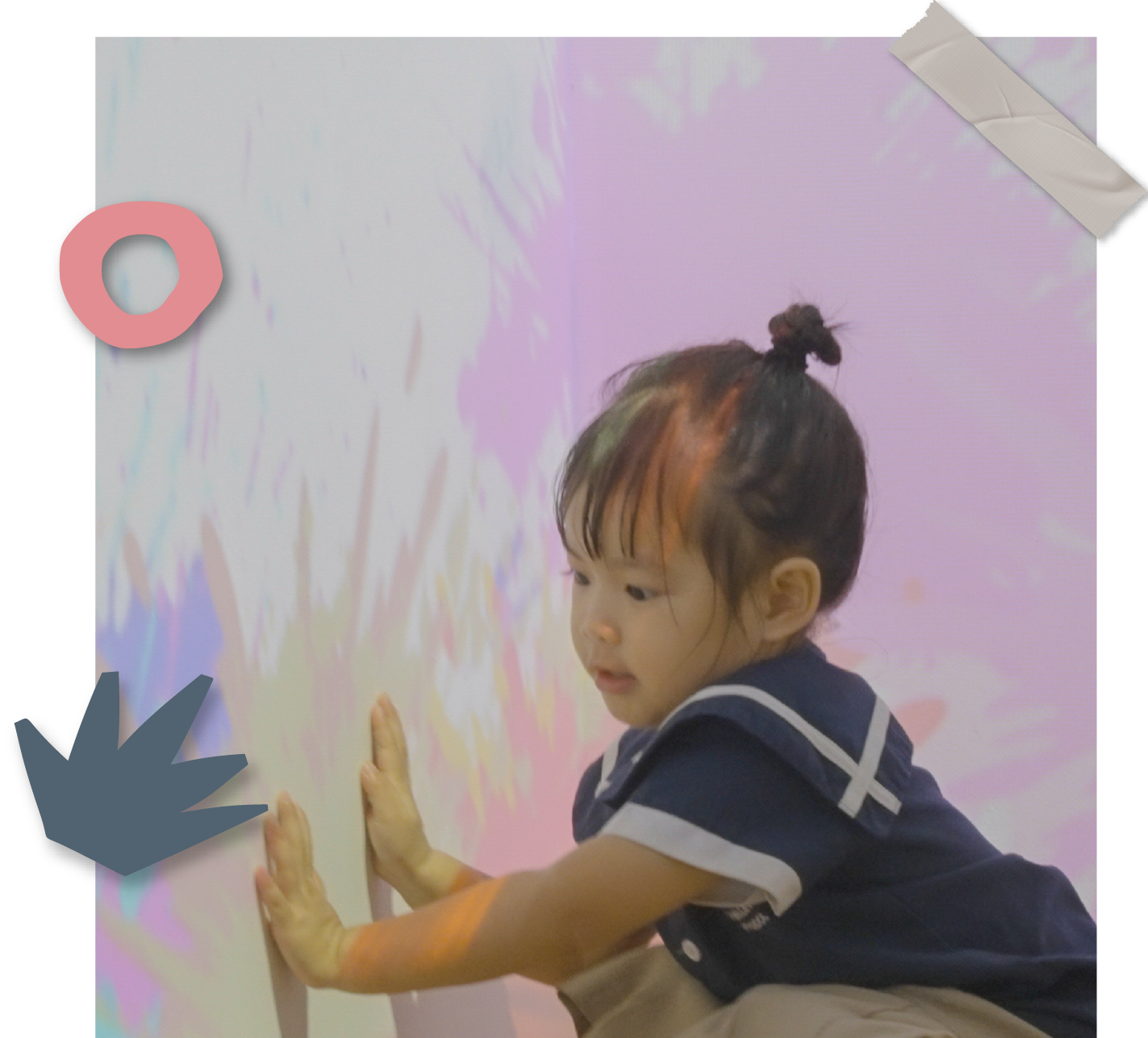
Children learn best by engaging with their environment, doing things in it, or exploring it. This is what happens in play. It can even be bolstered by collaboration, such as when parents play with their children.
An evidence brief from the Koi Tu Centre for Informed Futures noted studies that show increased grey matter volume for preschoolers who played with sensitive and responsive parents. This is just one of the ways play supports growth.
UNICEF has also stressed that play supports emotional well-being and reduces stress. At the same time, Singapore’s own MOE Nurturing Early Learners (NEL) Framework guides preschools to use active, purposeful play for quality learning.

What’s more, the National Association for the Education of Young Children frames play as an intentional route to the same core skills valued by academic programmes.
So what’s the takeaway here? That play is not a break from learning. Instead, it’s a medium for it. This further stresses the importance of learning through play.
There are many types of play found in preschool. The best establishments blend several in order to provide comprehensive, holistic growth experiences for children.
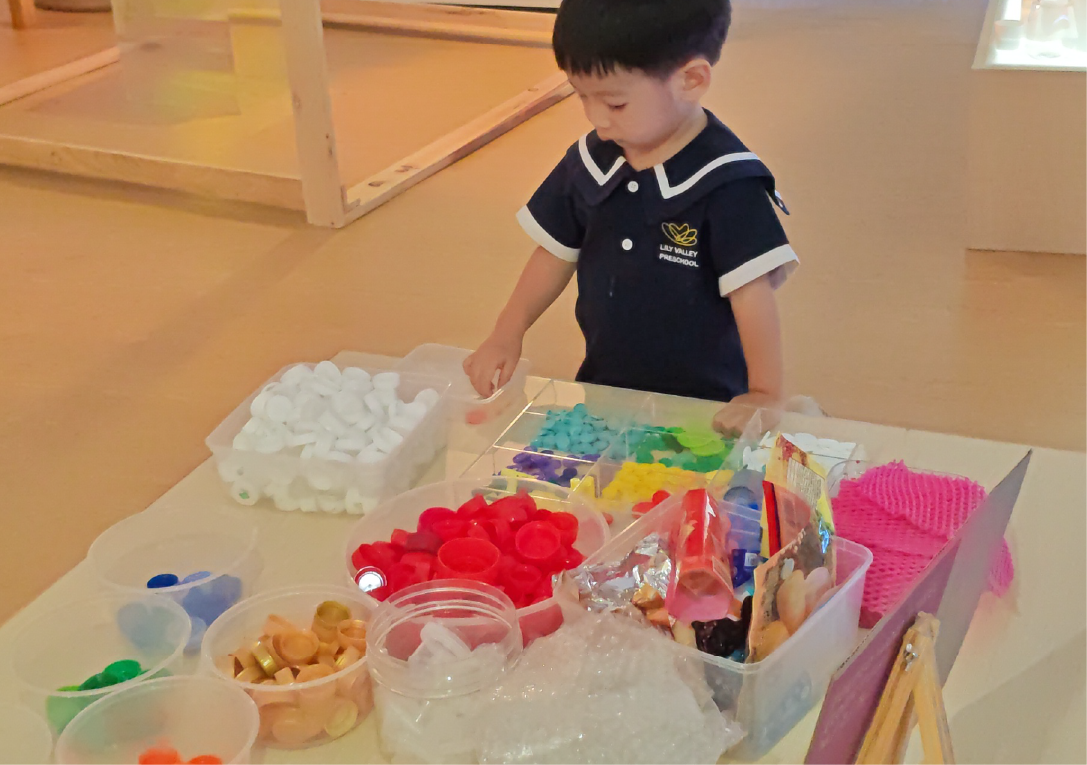
A hallmark of the Reggio Emilia approach, provocation play uses carefully arranged, open-ended materials to spark curiosity and exploration. These setups invite children to ask questions and experiment with possibilities.
At Lily Valley, provocations might be as simple as a tray of natural objects or as elaborate as a themed setup that ties into ongoing project work. During these sessions, children are encouraged to think independently, make connections, and express their ideas in creative ways.

Role-playing is a common way children use play to build imagination, language, and empathy. At Lily Valley, for example, our Mandarin Speech and Drama sessions give them fun and low-pressure ways to learn self-expression in Chinese.
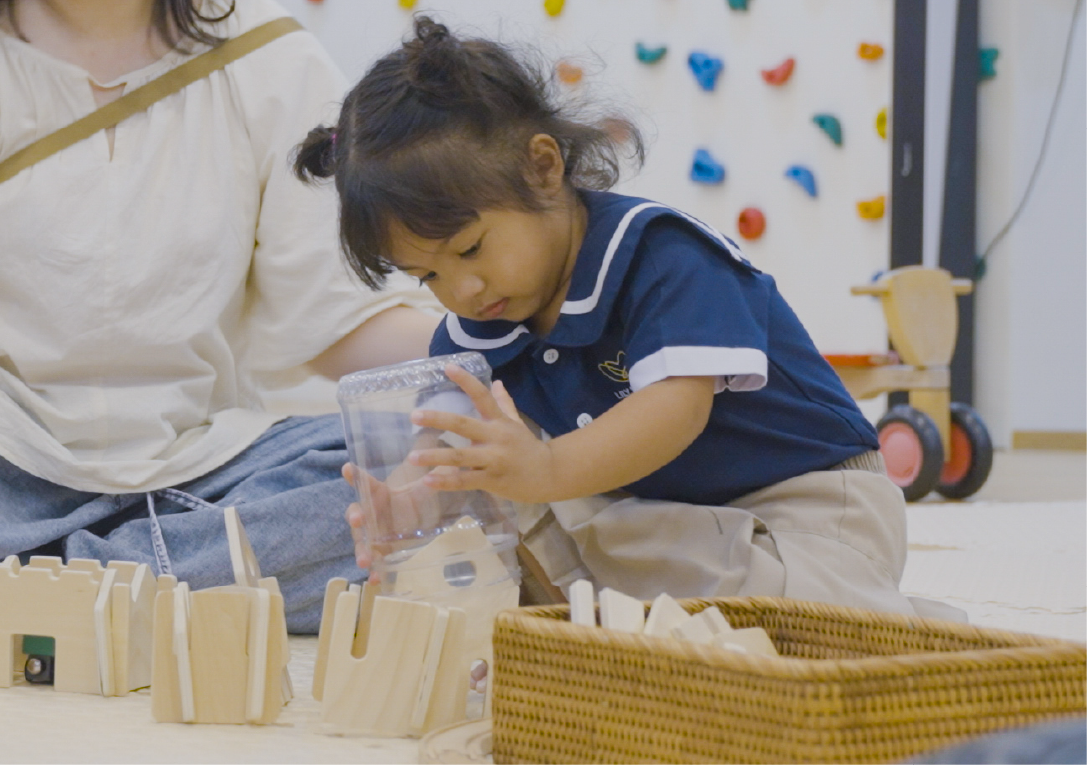
Building with blocks and puzzles is a good way to develop spatial awareness and problem-solving. Our Art Atelier may be a good illustration: in it, children can prototype and tinker with different materials as part of their project work.
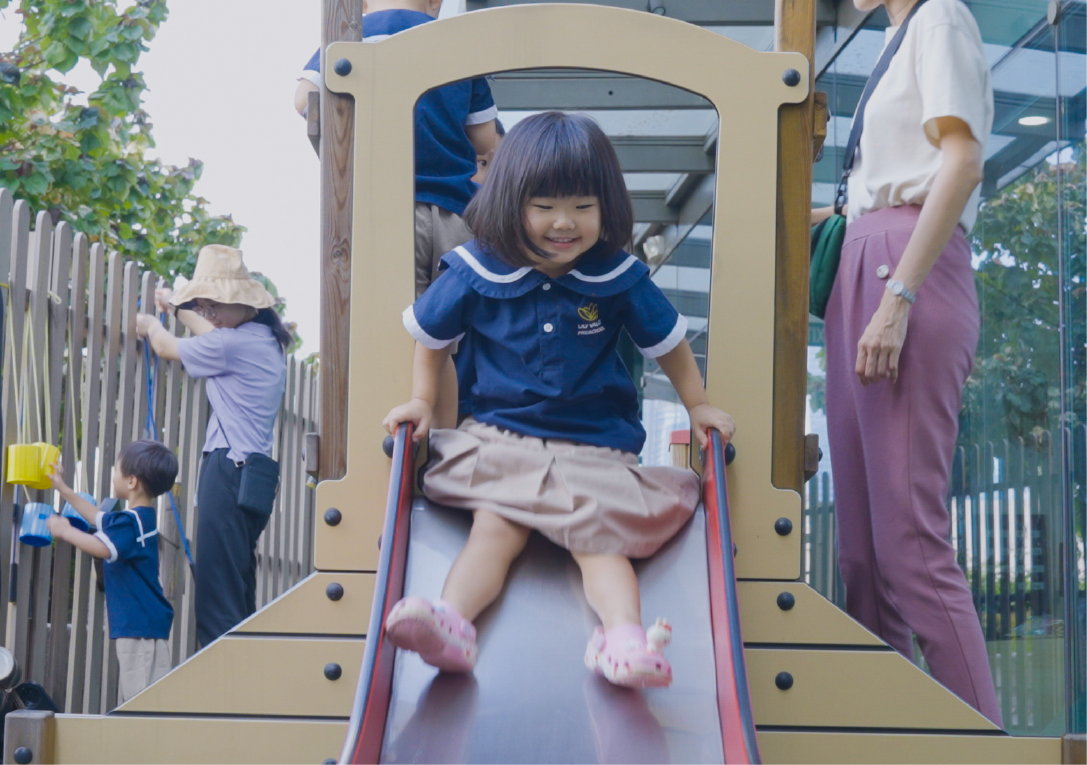
Running, dancing, and other sports build body strength, balance, and coordination. That’s why our own preschool offers an outdoor area where children can engage in various physical pursuits.
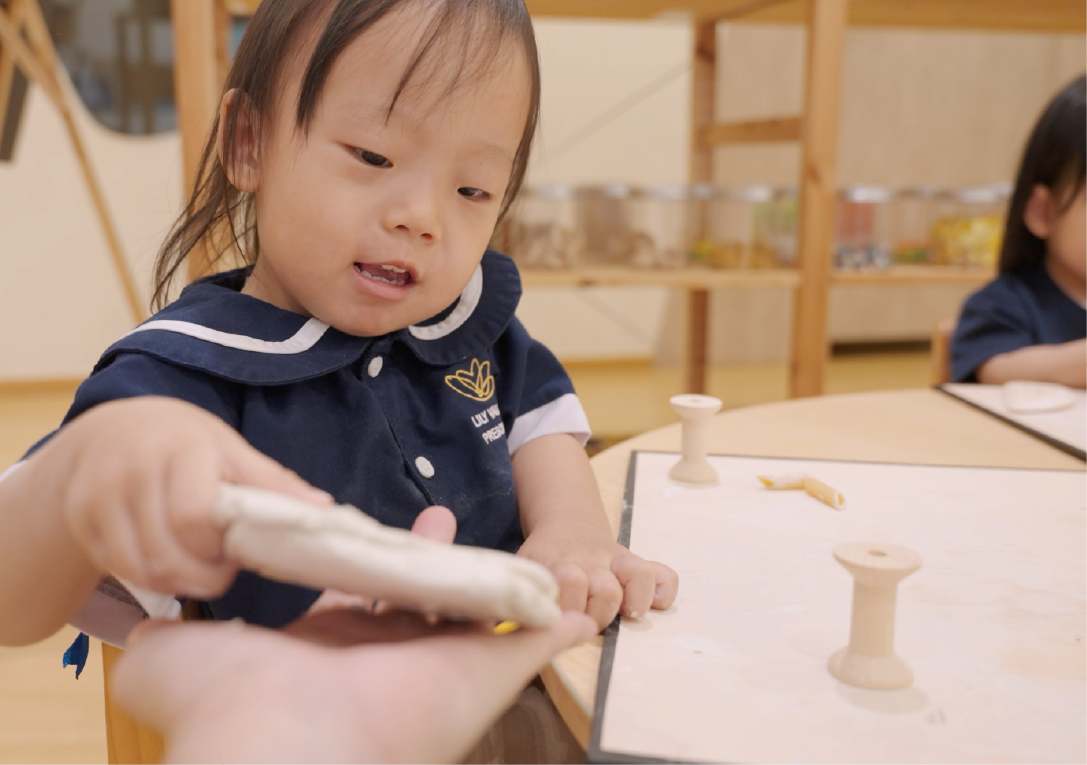
Collaborative play like group activities and playing house introduce little ones to teamwork, negotiation, and conflict resolution. Our teachers facilitate rather than script action in cases like this so children can lead and learn.
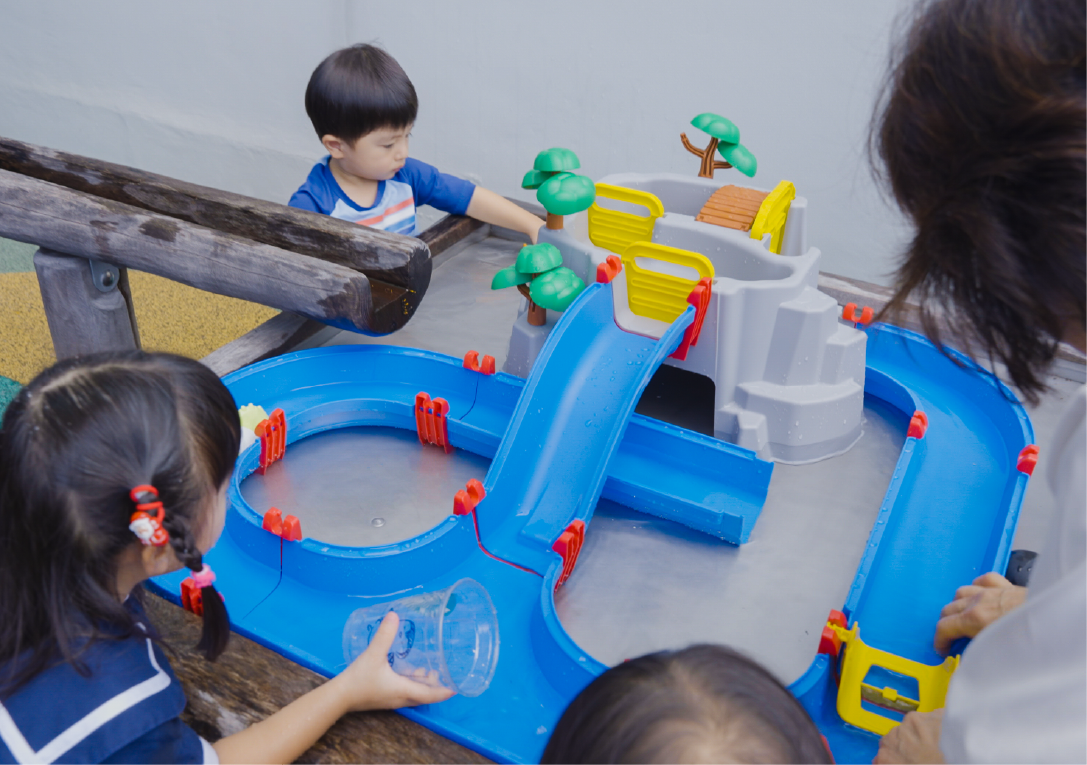
Water, light, and digital tools can support curiosity and cognitive development. We have a Light Atelier and Digital Landscape & Tinker Atelier to support this at Lily Valley.
The key benefits of play in preschool include cognitive growth, socioemotional development and physical development. It also builds a love for learning early on.
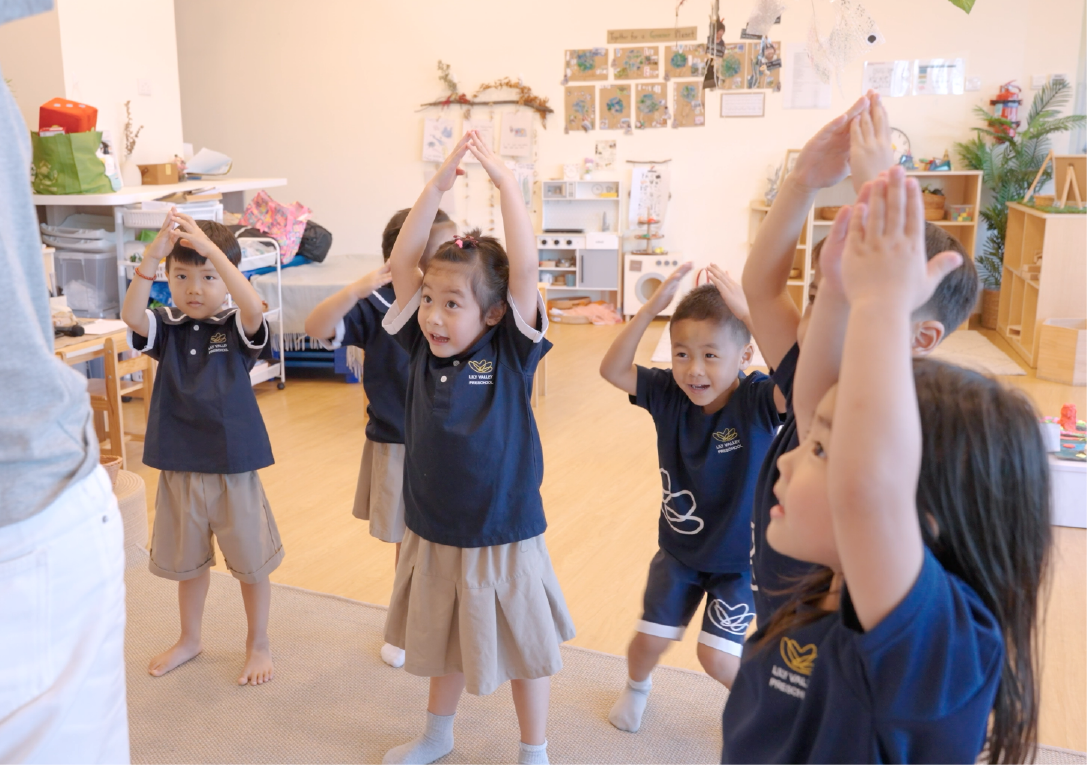
Through play, children practise the academic skills that academic preschools focus on. They build numeracy by counting blocks, for example.
Open-ended play also helps strengthen early problem-solving and critical thinking. This lays the groundwork for later academic work.
At Lily Valley, provocation play is one way we nurture this growth. By presenting our little ones with carefully arranged, open-ended materials, teachers invite them to think independently and make their own connections.

Play teaches children key social and emotional skills like turn-taking, conflict resolution, and sharing. In roleplay, for instance, a child learns to see from another’s perspective. This is critical to the growth of emotional intelligence.
Playful moments can also support emotional and mental health by reducing a child’s stress.
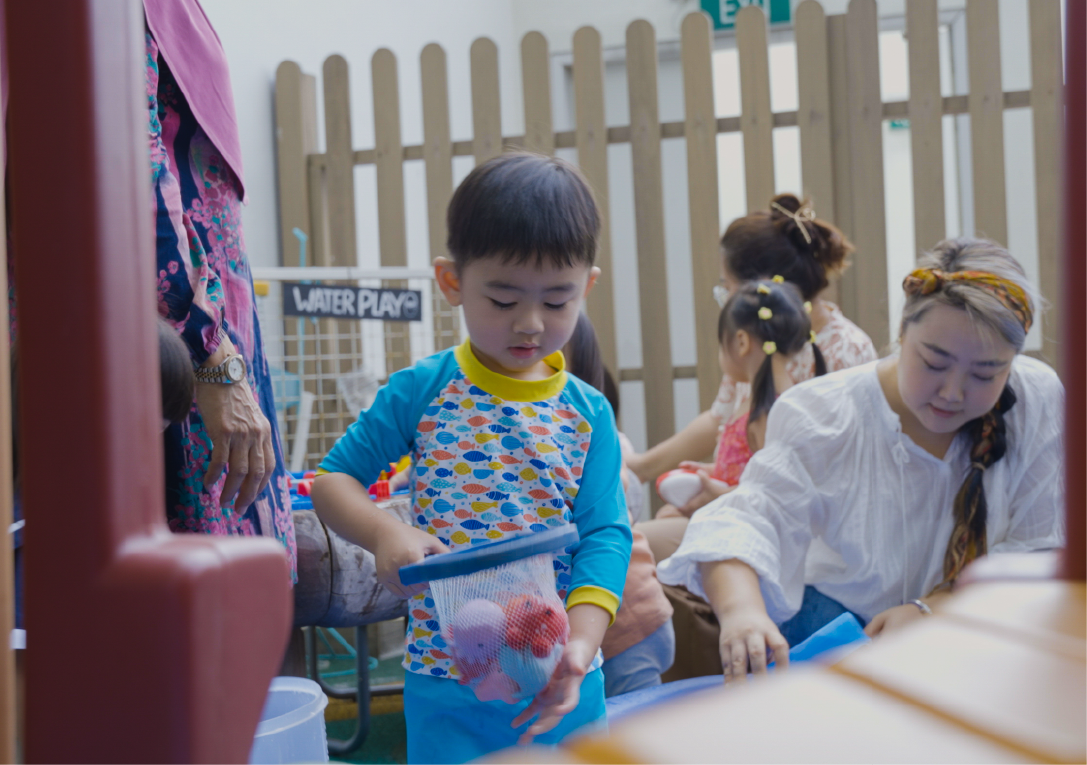
This has always been one of the great advantages of play-based learning. It uses something children love–play–as a vehicle for learning, and thus marries learning to the idea of fun.
This transforms learning into something joyful for a child, as opposed to something that places them under pressure. This builds a child’s openness to further learning in the future and builds intrinsic motivation for it.
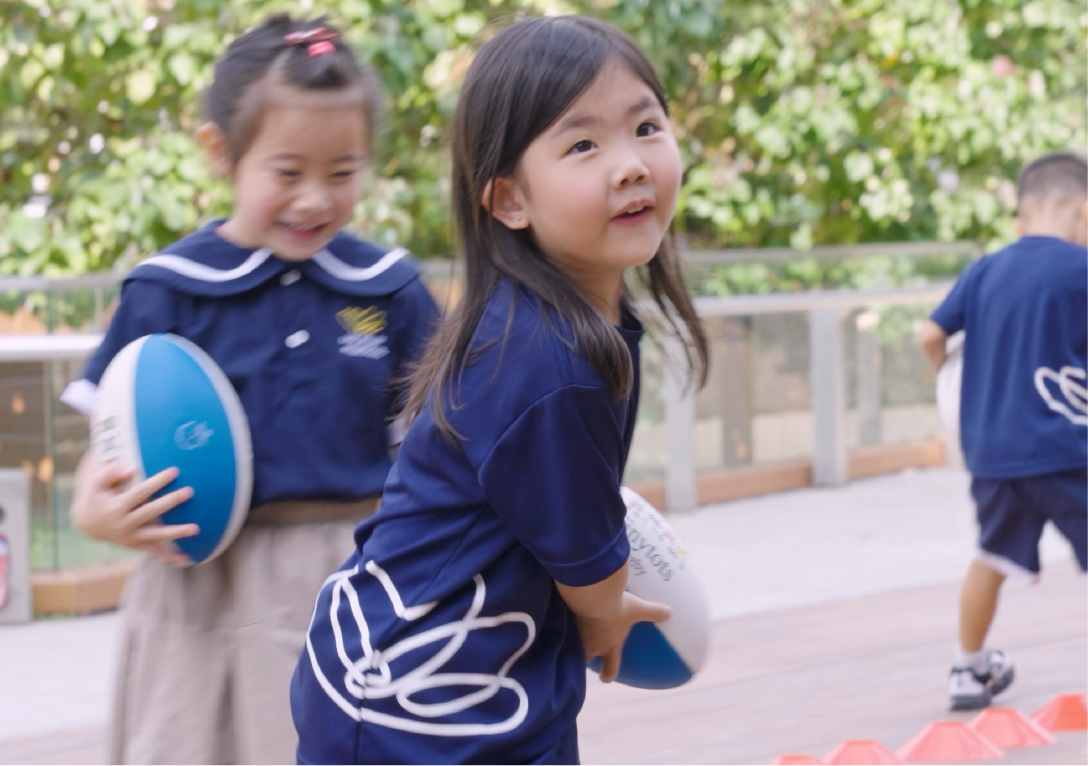
Outdoor and active play are excellent for supporting physical fitness and development. Meanwhile, activities like drawing and playing with blocks support fine motor skills.
Perhaps you worry that worksheets and drills might give a “head start” to children who go to academics-focused preschool instead.
However, evidence suggests a different route – research suggests that early pressure can cause children to feel stress and disengage from the learning process. By comparison, play-based learning fosters adaptability and resilience.
That can make play-based learning better as preparation for the challenges of primary school and beyond. It equips children for the transition with skills that cannot be taught through rote memorisation.
These include problem-solving, creativity, and social intelligence. By cultivating these through quality play and intentional guidance, preschools can prepare children for more structured learning without stress.
There are many things you can try to encourage play-based learning at home:
There are clear benefits to having play in your child’s preschool experience. It nurtures their mind, body, and heart in a way that academic-based approaches can’t.
If you want to learn more about how play-based preschools work, come to Lily Valley Preschool. You can even schedule a visit to see how purposeful play environments can support your child’s growth.